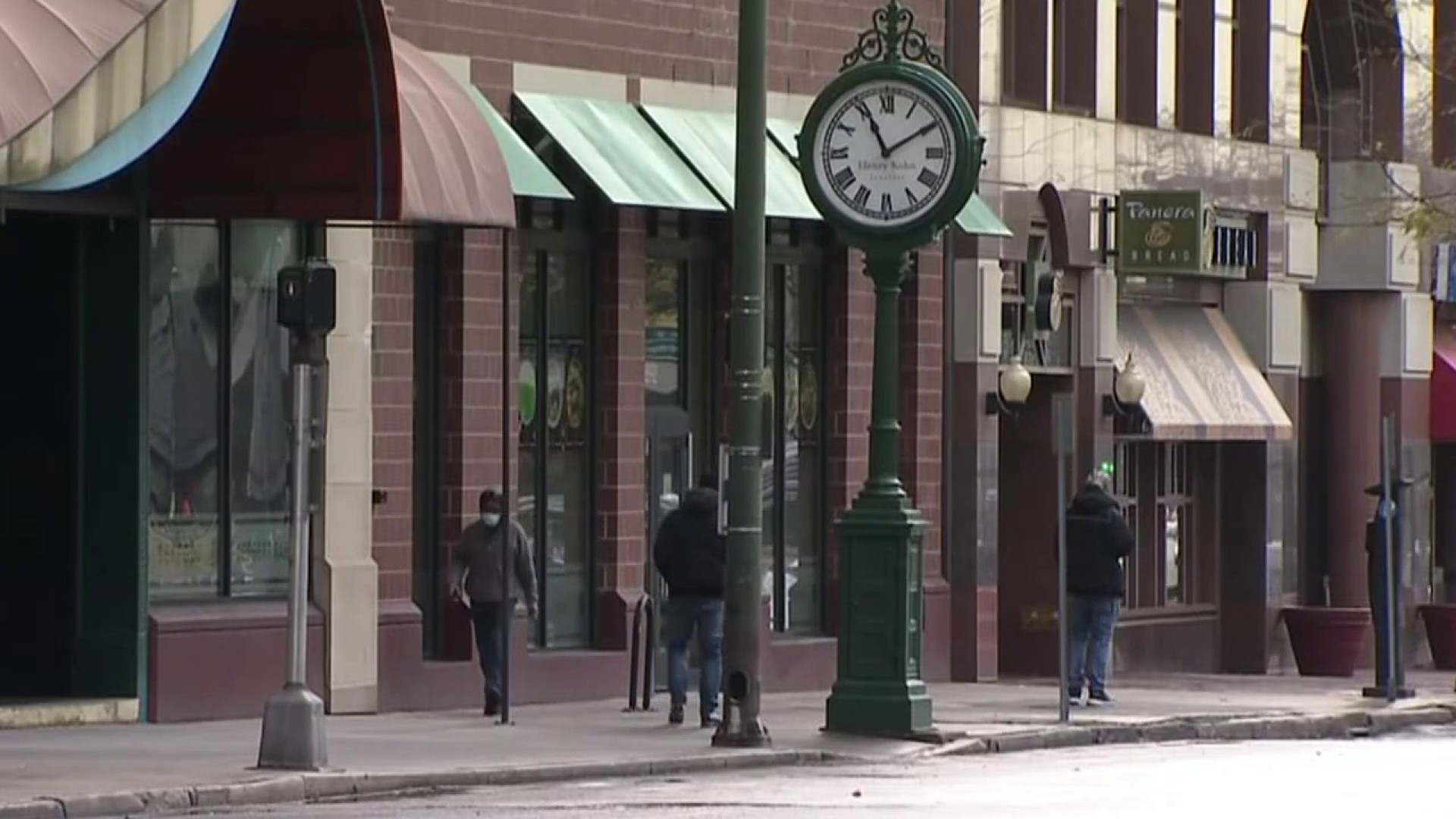How will lawmakers be able to make sure power providers are doing the work they promised, and will the electric grid be ready?
Rep. Jonathan Steinberg (D-Westport), who is the House chair on the Energy and Technology Committee, talks about a new mandate that could impact electric companies.
Mike Hydeck: So state regulators have more power now, and especially coming into the next session as well, when it comes to utility companies. Is grid readiness part of that?
Jonathan Steinberg: Well, certainly. Particularly under PURA dockets, the Public Utilities Regulatory Authority, we are looking at how do we prepare Connecticut for the advent of the EV revolution, which we're just in the early stages of. So yes, absolutely. We're looking at ways in which we can both prepare our grid, which has to be able to handle two-way flow of electrons over the wires when we start having EVs in our garages, and making sure that the entire system is going to be both resilient, but also have the capacity to take on this additional electrification of our transportation fleet.
Get Connecticut local news, weather forecasts and entertainment stories to your inbox. Sign up for NBC Connecticut newsletters.
Mike Hydeck: Now, speaking of that two-way flow, one of your things that you wrote in an op-ed about is smart meters getting installed on the sides of our home that can help monitor all these things, and probably make the price more equitable as well. Where are we with that? Is that going to be considered moving forward?
Jonathan Steinberg: United Illuminating, which has relatively fewer customers in the state, has already moved pretty far along on that point. Eversource, which has the balance of customers in Connecticut, the vast majority, has lagged a little bit. In fact, the PURA commissioners had to actually slap their wrists and penalize them for failing to move quickly enough. I know they'd like to be able to leverage the federal dollars that are on the table, which is a good thing, because it would mitigate the impact on ratepayers to pay for these things. But I think it's critically important they really kick it into a new gear. Because until we have smart meters in our homes, we will not be able to enable the demand response mechanisms, giving people choices about when to run their appliances, and whether to be buyers or sellers of electrons in real time. This is our future, and we can't get there until AMI is put in place.
Mike Hydeck: Right, because if you have an extra amount of power, you can sell it back. So let's talk about another thing. Your committee and other lawmakers as well have pushed for the power company rate increases to be tied to how well they serve their customer. Are we in that arena right now? And how does that work, exactly?
Face the Facts
Face the Facts with NBC Connecticut goes beyond the headlines, asking newsmakers the tough questions, giving an in-depth analysis of the big stories.
Jonathan Steinberg: Well, we're the early stage of that, with the passage of Senate Bill 7, which was the second of two, what we call Take Back Our Grid acts. We have put in place a performance based paradigm that's frankly different than what most states have. It incentivizes the utilities to do the right thing, to make appropriate investments to do a quality job in a timely manner, like we were talking about with AMI. And for that they will receive the maximum compensation. However, if they fail to do that, if they're either not timely or don't do a particularly good job, we will not compensate them at the same level just for showing up for work. This is what people told us after the superstorms. They wanted us to hold the utilities accountable and give PURA, our regulatory authority, the tools they needed to enforce compliance. I know they're squirming right now. The utilities are not happy. They're having to go through a tough transition. But this is what we signed up for. And hopefully it will really play out and maybe even be a model for other states going forward.
Mike Hydeck: Well, and considering we have among the most, if not the most expensive electricity in the country for a small state, any impact is going to make a big difference. So if my power goes off for five days, hearkening back to the big storm Isaias, do I get a credit on my bill under these new regulations and power companies? How does that work?
Jonathan Steinberg: Yeah, certain interval has to pass to give the utilities a fair chance to restore your power. But if it's after that timeframe, you can be compensated for spoiled food, for spoiled medication and potentially for other losses as well. Again, this is what people said was only fair. The utilities should have plenty of reason to restore our power as quickly as possible, or face some consequences for that.
Mike Hydeck: One of the other things that people talked about in that same time frame was companies would add extra fees for cleanup costs. So the trees fall down, it takes them five, six days to bring things back. Now the customer gets a surcharge on their bill for all that extra manpower. Is that still the same? Or is that changed?
Jonathan Steinberg: That's not my understanding. It is the utility's responsibility to maintain the lines and the wires and the transformers and therefore deal with the trees that threaten them. Now I know all of us from time to time can be perfect hypocrites. We don't want trees taking down our lines, but don't you dare touch my tree. So it does make it hard for them to implement the program. But they ignored it for over a decade. They did not do appropriate maintenance and they're playing catch up. It should not fall on the ratepayers to to make up for missed opportunities in the past, though, I will say that I saw somebody working for Eversource in my neighborhood, talking about pruning some of the trees on my street. I actually almost embrace them saying, absolutely, you need to be doing these things. I think if we all take that approach, we'll have greater resilience after storms.
Mike Hydeck: And to give them that credit in my neighborhood in several neighborhoods in and around the Hartford area, I've seen lots of crews doing the tree trimming and have an Eversource label on it. So at least it seems like they are playing catch up.



